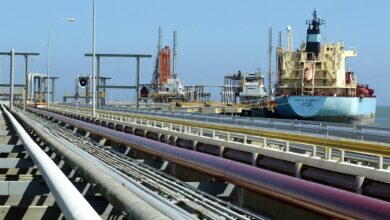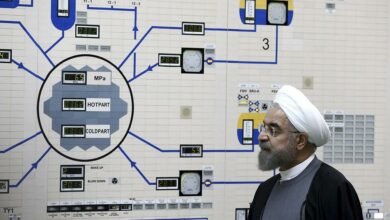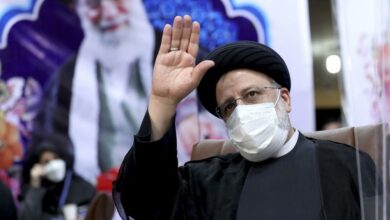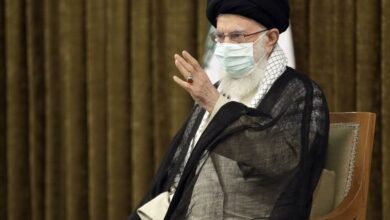Tehran— President Mahmoud Ahmadinejad ordered Iran’s atomic chief on Sunday to enrich uranium to 20 percent, in a fresh challenge to world powers days after appearing to accept a UN-drafted nuclear fuel deal.
Ahmadinejad blamed the world powers for the stalemate over the fuel deal, but left the door open for possible negotiation over the proposal.
He also insisted that world powers "unconditionally" accept exchanging Iran’s low-enriched uranium (LEU) for high purity 20 percent enriched uranium to be used as nuclear fuel for the Tehran reactor which makes medical isotopes.
"I had said let us give them (world powers) two to three months and if they don’t agree, we would start ourselves," Ahmadinejad said in a speech at an exhibition on laser technology which was broadcast live on state television.
"Now Dr (Ali Akbar) Salehi, start to make the 20 percent with the centrifuges," the hardliner told the atomic chief, who was sitting in the audience.
He also said that Iran now had laser technology which can enrich uranium to any level but Tehran would resort to using centrifuges — the device which rotates at supersonic speed– for processing high purity uranium.
Ahmadinejad’s latest statement comes after he indicated in an interview on state television last Tuesday that Iran was ready to send its LEU abroad for conversion into 20 percent nuclear fuel.
ILNA news agency reported that foreign ministry spokesman Ramin Mehmanparast said that enriching uranium to 20 percent was Iran’s "right and not in contradiction to the NPT (Non Proliferation Treaty)" to which Tehran is a signatory.
Defending the plan, Mehmanparast said that Iran will need "vast" amount of nuclear fuel in future which will be partly met by in-house production and partly from imports if those "who make it cooperate."
Iran and world powers are locked in a stalemate over the UN-drafted deal, which envisages the Islamic republic’s 3.5 percent LEU being sent to Russia and France for enrichment to 20 percent and then returned as fuel for the Tehran reactor.
Iranian officials have opposed this proposal, saying they would prefer a simultaneous exchange on Iranian soil, a plan rejected by world powers.
World powers are keen to ship out Iran’s LEU as they fear Tehran will enrich it to very high levels for use in an atomic weapons program. Iran insists its nuclear enrichment drive is purely for peaceful purposes.
Ahmadinejad said Sunday that if the world powers "come forward and say ‘we will exchange (uranium) unconditionally and cooperate on your reactors and medicine’… fine then we will cooperate" too.
The hardliner laid the blame for the deadlock entirely at the door of world powers.
"Recently we said let’s swap (uranium) though we can produce the 20 percent, but they started playing games," he said.
"They have just sent messages though that they want to fix things. The road to engagement is open. We did not block it."
The near daily shifts in the Iranian position over the fuel deal has consistently raised skepticism among world powers, who want to halt Tehran’s galloping nuclear drive.
"I don’t have the sense we are close to an agreement," US Defense Secretary Robert Gates said in Ankara on Saturday, a day after Iranian Foreign Minister Manouchehr Mottaki said the nuclear fuel deal was close to being finalized.
"If Iran has decided to accept the proposal of the P5-plus-one, they should do that to the IAEA (International Atomic Energy Agency)," he told reporters, referring to the five permanent UN Security Council members and Germany.
But IAEA director general Yukiya Amano, who met with Mottaki on the sidelines of the Munich Security Conference, said the Iranians brought nothing new to the talks.
"We had a very interesting discussion…. There was not a new proposal," Amano told reporters.
Iran has "done nothing to reassure the international community," Gates said, adding that "various nations need to think about whether it’s time for a different tack," indicating the need for a fourth round of sanctions against the Islamic republic.




